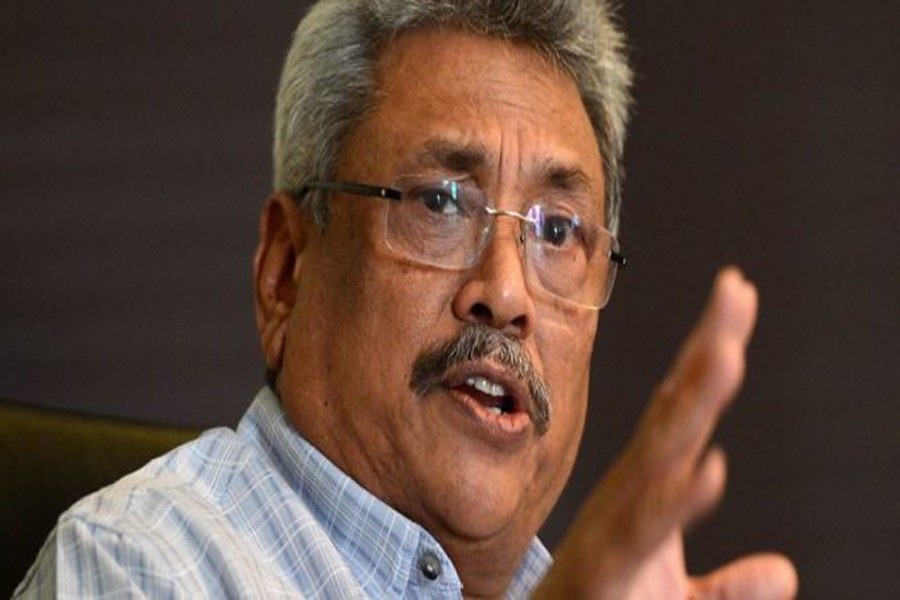COLOMBO: Sri Lankans, angered by the government’s inability to prevent the Easter Sunday terror attacks that killed more than 250 people, want a strongman back in power who can guarantee their safety and bring back economic growth, reports Reuters.
Many are rooting for Gotabaya Rajapaksa, who despite fighting allegations of war crimes, is expected to be announced as the presidential candidate of the opposition nationalist Sri Lanka Podujana Peramuna (SLPP) party, as early as Sunday.
The Rajapaksa brothers, Gotabaya and Mahinda, were credited with bringing peace to Sri Lanka in 2009 by defeating the Tamil Tigers in a brutal end to the 26-year-long civil war between the Sinhalese Buddhist majority and minority Tamil groups. Gotabaya was the defense secretary at the time and Mahinda the nation’s president.
“The people have requested a leader who can ensure their security,” Basil Rajapaksa, founder of the SLPP and youngest brother of Gotabaya and Mahinda told reporters on Thursday.
Gotabaya is facing lawsuits in the United States for instigating and authorizing the extrajudicial killing of a journalist and of war crimes against the Tamils during his time as defense secretary.
He has denied the allegations and said the lawsuits, brought by torture survivors and the daughter of the slain journalist, were timed to thwart his possible presidential run. A final date for the presidential elections has not been decided but must be held before Dec 9.
Sri Lanka’s constitution is modeled on the French system of government where the president has executive powers while the prime minister heads the parliament.
The current government is headed by President Maithripala Sirisena, the leader of center-left Sri Lanka Freedom Party (SLFP) while Prime Minister Ranil Wickremesinghe is from the center-right United National Party (UNP), which has a majority in the parliament.
Sirisena and Wickremesinghe, who have been at loggerheads since last October, have blamed one another for ignoring warnings from India and failing to stop the attacks.
Calls for a nationalist leader like Gotabaya, who has strong support from within Sri Lanka’s majority Sinhalese Buddhist community, echo similar choices made by voters in other Asian nations including India and Bangladesh.
In India, Prime Minister Narendra Modi, who was elected for a second term in May in a landslide victory, rallied his Hindu nationalist base and turned the campaign into a fight for national security and an aggressive stance against Pakistan.
Bangladeshi Prime Minister Sheikh Hasina, who won a third straight term in an election last December, has been criticized for suppressing dissent and jailing critics.


